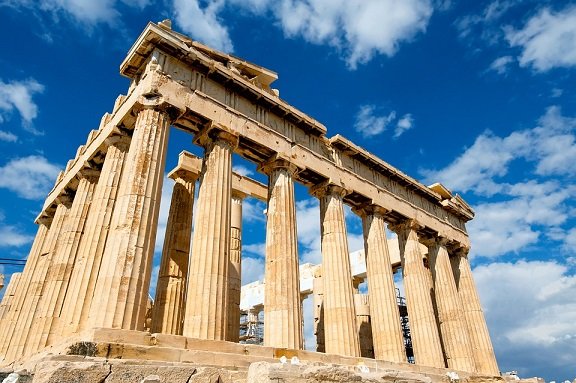
Image source
More than 2500 years ago, the inhabitants of the ancient Greece created some of the most advanced and influential civilizations in the world. The Greek civilization reached its maximum splendor between 500 and 336 a.C., in the so-called classical era. The Greeks invented science, philosophy, theater and politics, and also introduced the alphabet in Europe. His stories are still read and his plays are still represented. They were also wonderful artists and builders: their temples, like the Parthenon of Athens, are still among the most beautiful buildings in the world.
A COMPETITIVE PEOPLE
The Greeks were one of the most competitive people in history. They saw everything from sports to politics, as a competition in which they excel and gain glory. Cities also competed with each other and often fought.
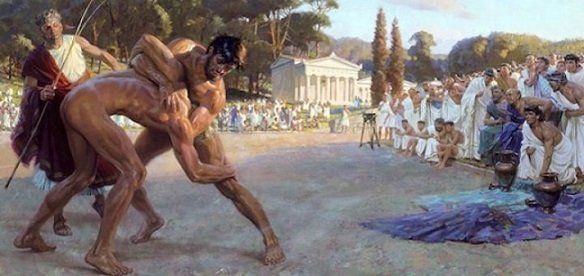
Image source
CITIES-STATE
In classical times, Greece was divided into hundreds of small polis or city-states. These divisions were partly due to the mountainous landscape. One of the most powerful polis was Athens, the capital city of Greece. The modern city, still crowned by the ancient temple of Athens, has grown to cover the plain on which the farmers once cultivated.
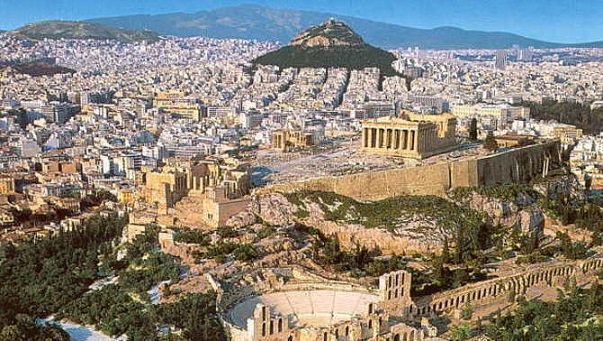
Image source
THE SEA
The Greeks lived by the sea. This supposed that they sailed in a habitual way. Fish was more abundant than meat and was an important part of their diet. This mural depicting a fisherman with a large catch comes from the island of Tera (Today Santorini) and dates from around 1600 BC.
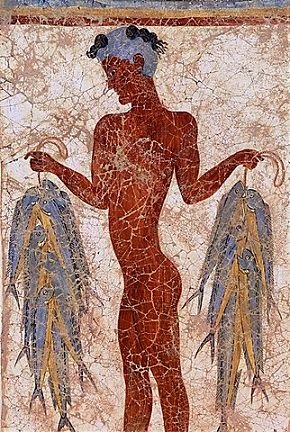
Image source
GREEKS AND BARBARIANS
Although they were divided and very competitive, the Greeks had a strong sense of belonging to a culture superior to others. They worshiped the same gods and shared the same sacred places, such as Delphi, home of the god Apollo. The language also united them. They called foreigners "barbarians" because their speech articulated sounds (bar bar) incomprehensible. The Greeks believed that foreigners were less civilized than they were.
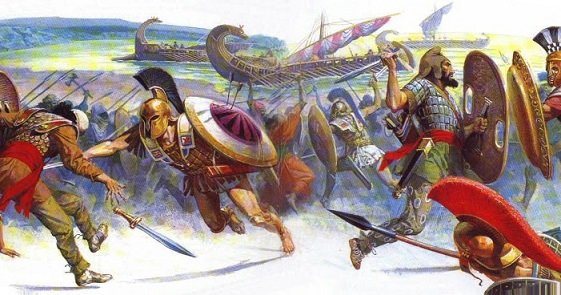
Image source
STUDY OF THE PAST
Thanks to his many writings, which Arab scholars and Christian monks copied and carefully preserved during the Middle Ages, we know the Greeks better than any other people of antiquity, except the Romans. Also letters and fragments of texts have been discovered, conserved by the sand mints of Egypt. The archaeological excavations of cities, tombs and temples, as well as the remains of shipwrecks, are another source of information.
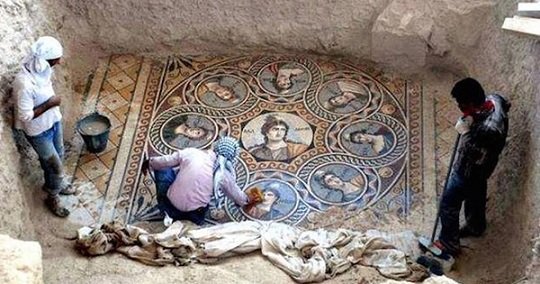
Image source
HISTORY OF GREECE
BRONZE AGE (2900 - 1200 a.C)
Greek history has been divided into five epochs. The earliest of all of them is the Bronze Age, when this, and not the iron, was the most used metal. It was the period of the Minoan civilizations, in Crete, and Mycenaean, in mainland Greece. This Minoan mural depicts a religious procession.
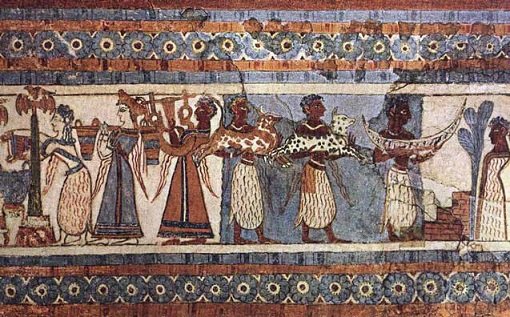
Image source
DARK EPOCH (1200 – 800 a.C)
After the destruction of the Bronze Age civilizations, Greece entered a dark age, so called because we know very little of what happened then. Unlike the Greeks of the Bronze Age, those of the dark period left almost no writings. A new people who spoke Greek came from the north and introduced the steel industry.
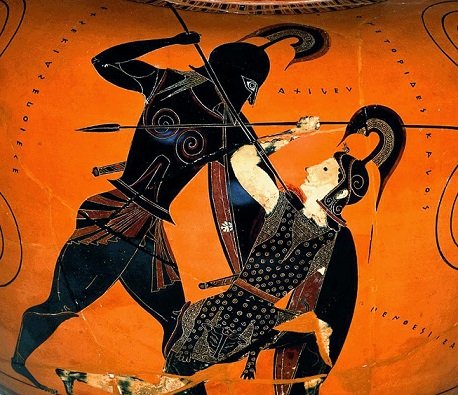
Image source
ARCAICA EPOCH (800 – 500 a.C)
In the archaic era the ancient Greek civilization recovered gradually. A new alphabet was introduced and long-distance trade was reborn. The Greeks founded a large number of colonies throughout the Mediterranean. At this time the independent polis or city-states began to be developed.

Image source
CLASSIC EPOCH (500 – 335 a.C)
During the classical era, Greek arts and architecture reached their peak. The two city-states leaders, Athens and Sparta, were in a heyday they united to fight against the Persian invasions, but soon they faced between them. These ruins in Italy are a typical example of the classical temple.
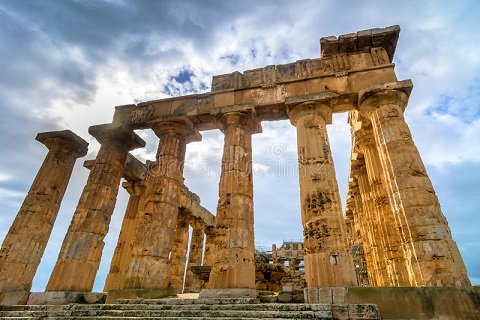
Image source
HELENISTIC EPOCH (336 – 150 a.C)
During the Hellenistic (Greek) era, the Greek states united under the power of Alexander the Great of Macedonian, who conquered the Persian Empire and extended the Greek way of life from Egypt to Afghanistan. His successors founded numerous Hellenistic kingdoms that the Romans conquered later.
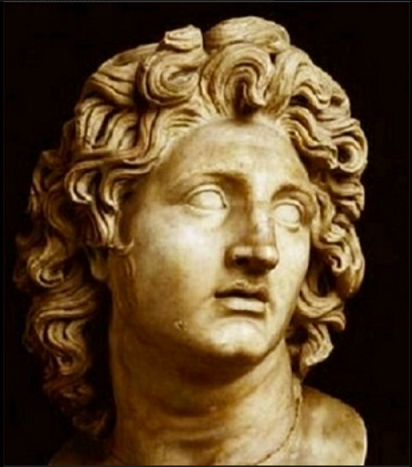
Image source
Book by editor Dorling Kindersley, to learn more visit the website of .DK
REFERENTIAL IMAGES TAKEN FROM THE INTERNET, ONLY TO GIVE REFERENCE AND SENSE TO THE SUBJECT OF WHICH THIS PUBLICATION IS SPEAKED, FOR THAT REASON I GIVE BELOW EVERY IMAGE, THE SOURCE OF THE SAME.

